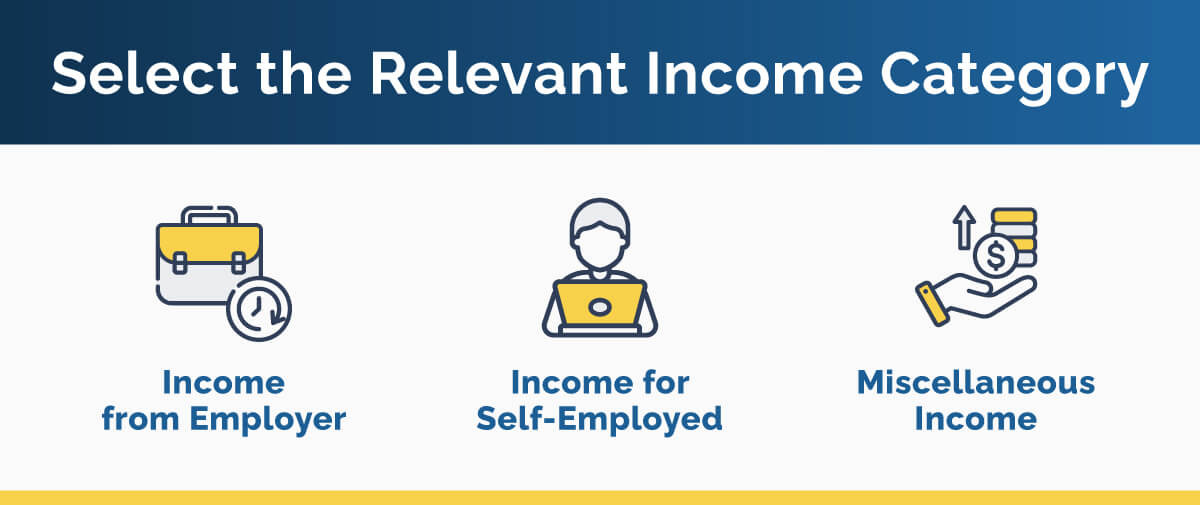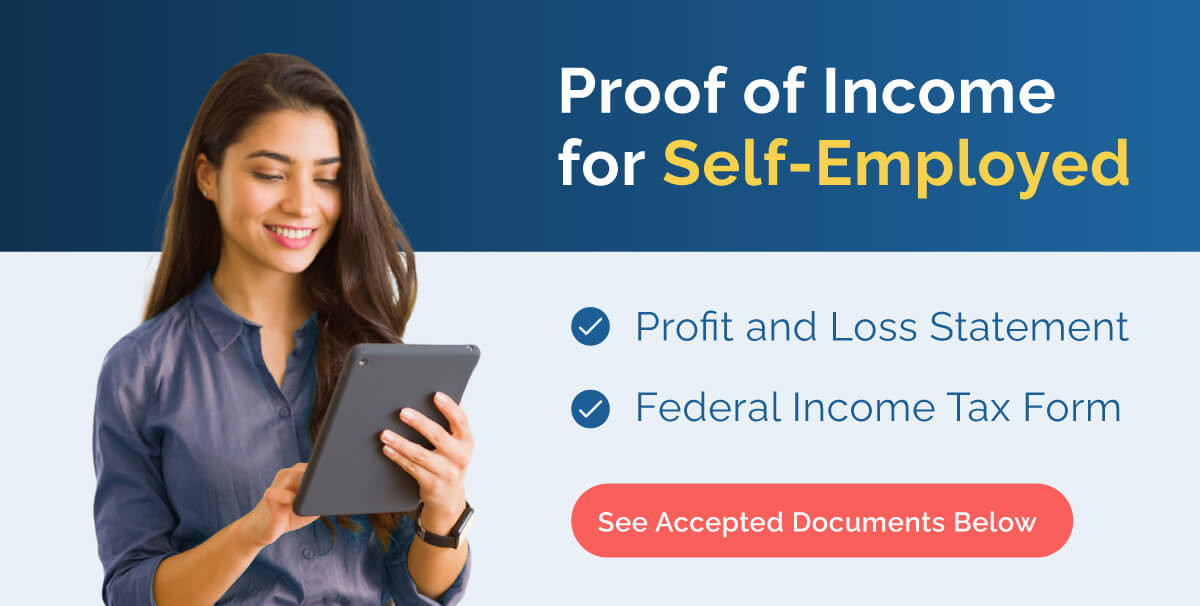Medi-Cal income verification ensures eligible individuals and families gain access to affordable healthcare. At income-partners.net, we understand the importance of navigating this process smoothly. We provide resources and potential partnership opportunities to help you increase your income and maintain eligibility. Discover various acceptable documents, verification methods, and strategies to optimize your income streams while ensuring continuous healthcare coverage. Explore income-based eligibility, income documentation, and healthcare access on our website.
Table of Contents
- Why Does Medi-Cal Need to Verify Income?
- What Documents Does Medi-Cal Accept for Income Verification?
- 2.1. Income from Employer
- 2.2. Income for Self-Employed
- 2.3. Miscellaneous Income
- How Does Medi-Cal Use the Verified Income Information?
- What Happens If I Don’t Verify My Income?
- What Are Common Mistakes to Avoid During Income Verification?
- Can I Appeal a Medi-Cal Decision Based on Income Verification?
- How Does Income Verification Differ Between Covered California and Medi-Cal?
- What Are the Income Limits for Medi-Cal Eligibility?
- How Can Income-Partners.net Help Me Understand Medi-Cal Income Verification?
- Frequently Asked Questions (FAQs)
1. Why Does Medi-Cal Need to Verify Income?
Medi-Cal needs to verify income to determine eligibility and the appropriate level of benefits for applicants. Verifying income ensures that healthcare resources are allocated fairly and efficiently to those who genuinely qualify. This process confirms that individuals meet the income requirements set by Medi-Cal, preventing fraud and misuse of funds. It also helps in calculating any share of cost (SOC) that beneficiaries might have, based on their income level.
Verifying income is a critical step in maintaining the integrity of the Medi-Cal program. Accurate income verification ensures that those who need assistance receive it, while preventing those who are not eligible from accessing benefits. This process is essential for the financial sustainability of the program and for ensuring that healthcare services are available to California’s most vulnerable populations.
 Medi-Cal Income Category
Medi-Cal Income Category
2. What Documents Does Medi-Cal Accept for Income Verification?
Medi-Cal accepts various documents to verify income, depending on the source of income. Understanding which documents are acceptable can streamline the application process and ensure timely approval. Generally, Medi-Cal categorizes income into three main types: income from an employer, income for self-employed individuals, and miscellaneous income.
2.1. Income from Employer
For verifying income from an employer, Medi-Cal generally accepts the following documents:
- Pay Stubs: Pay stubs are a common and straightforward way to verify income. They must accurately reflect the income reported on the application. While Covered California requires pay stubs to be issued within the last 45 days, Medi-Cal doesn’t have this strict requirement, but the pay stub should still reflect current income.
- Federal Income Tax Form 1040: A copy of last year’s federal tax return can be used if it accurately reflects current income.
- Employer Statement: A signed letter from the employer, including the employer’s signature and date, can serve as verification. The letter must include the employee’s name and a statement confirming the accuracy of the income information.
- Foreign Income: If you have income from a foreign employer, you can provide pay stubs or other relevant documents that verify the income.
2.2. Income for Self-Employed
For self-employed individuals, verifying income can be slightly more complex. Acceptable documents include:
- Profit and Loss Statement: Business records like profit and loss statements, along with receipts displaying profit and expenses, are accepted. These records must be signed by the person claiming the income, along with a statement affirming the accuracy of the information.
- Federal Income Tax Form 1040 with Schedule C: A copy of last year’s federal tax return (Form 1040) along with Schedule C, D, E, or F (as appropriate) can be used if it accurately reflects current income.
 Acceptable Documents for Self-Employed
Acceptable Documents for Self-Employed
2.3. Miscellaneous Income
Miscellaneous income covers various sources beyond employment and self-employment. Documents for verification include:
- Bonds or Stock Dividends: Form 1099, bank statements, investment account statements, or payment records (notes and mortgages) can be used.
- Retirement, Survivors, and Disability Insurance (RSDI): Current bank statements (if direct deposit is used), current benefit checks, IEVS/PVS statements, or a signed statement from the income-providing organization can be submitted.
- Pensions and Annuities: Award letters or bank statements are typically accepted.
- Unemployment Compensation: Pay stubs, paychecks, bank statements, or award letters can be used as proof.
- Education Scholarships, Awards, and Fellowship Grants: A letter or award letter from the school’s financial office is required.
- Gift Income: A gift income letter is necessary. This letter must include the name of the person receiving the gift regularly and the gift giver’s signature, along with the date the gift was received (must be within the last 45 days). One-time gifts are generally not acceptable.
- Alimony Received and Court Awards: Court orders/papers, copies of checks or pay stubs, District Attorney/Family Support (DAFS) records, or sworn affidavits from the absent parent can be used.
- Net Income from the Rental of Property: Lease or sales agreements (rental receipts, checks, lease agreements) and records such as gross rents and expense receipts are acceptable.
- Room Rental Income: Income Documentation for Renting a Room form, a copy of a payment receipt, or copies of cancelled checks can be provided.
- Income from Tips: Pay stubs showing the amount reported, the amount actually reported by the applicant, and a statement under penalty of perjury (if there’s a discrepancy) are needed.
Navigating the complexities of income verification can be challenging. Income-partners.net can help you explore opportunities to optimize your income while meeting Medi-Cal requirements.
3. How Does Medi-Cal Use the Verified Income Information?
Medi-Cal uses verified income information to determine eligibility, calculate the appropriate level of benefits, and assess any share of cost (SOC) that beneficiaries may have. Accurate income verification is crucial for fair and efficient allocation of healthcare resources.
- Eligibility Determination: Medi-Cal sets specific income thresholds for different categories of applicants, such as individuals, families, and those with disabilities. Verified income is compared against these thresholds to determine whether an applicant qualifies for Medi-Cal.
- Benefit Level Calculation: The level of benefits a beneficiary receives can be influenced by their income. For example, some individuals may qualify for full-scope Medi-Cal, which covers a wide range of services, while others may only be eligible for limited-scope benefits due to higher income.
- Share of Cost (SOC) Assessment: Some Medi-Cal beneficiaries may have a share of cost, which is the amount they must pay towards their healthcare expenses each month before Medi-Cal begins to cover the remaining costs. The SOC is calculated based on the beneficiary’s income.
According to a study by the University of California, San Francisco, accurate income verification helps prevent overpayment and fraud, ensuring that Medi-Cal funds are used effectively.
4. What Happens If I Don’t Verify My Income?
If you don’t verify your income, Medi-Cal may delay, reduce, or deny your healthcare benefits. Providing the necessary documentation is essential for maintaining uninterrupted coverage.
- Delayed Processing: Without income verification, your application may be delayed, leaving you without timely access to healthcare services.
- Reduced Benefits: In some cases, Medi-Cal may provide limited benefits until your income is verified, impacting the scope of services you can access.
- Denial of Coverage: If you fail to provide income verification within the specified timeframe, your application may be denied altogether, leaving you without Medi-Cal coverage.
- Potential for Recoupment: If it is later determined that you received benefits without proper income verification, Medi-Cal may seek to recoup the cost of those benefits.
To avoid these issues, ensure you understand the required documentation and submit it promptly. For support in managing your income and healthcare eligibility, explore the partnership opportunities at income-partners.net.
5. What Are Common Mistakes to Avoid During Income Verification?
Avoiding common mistakes during income verification can streamline the process and ensure timely approval of your Medi-Cal benefits.
- Submitting Outdated Documents: Ensure that the documents you submit are current and within the acceptable timeframe. For example, pay stubs should be recent, and tax returns should reflect current income.
- Incomplete Documentation: Provide all required documents and ensure they are complete and accurate. Missing information can cause delays or denial of benefits.
- Inconsistent Information: Ensure that the information on your application matches the information on your income verification documents. Discrepancies can raise red flags and require further investigation.
- Failure to Report All Income Sources: Report all sources of income, including wages, self-employment income, rental income, and other miscellaneous income. Failure to do so can lead to inaccuracies and potential penalties.
- Not Keeping Copies of Documents: Always keep copies of all documents you submit for your records. This can be helpful if there are any questions or issues with your application.
According to the California Department of Health Care Services, providing accurate and complete information upfront can significantly reduce processing times.
 Proofs for Annual/Current Income from Employer
Proofs for Annual/Current Income from Employer
6. Can I Appeal a Medi-Cal Decision Based on Income Verification?
Yes, you can appeal a Medi-Cal decision based on income verification if you believe the decision was incorrect. Understanding your appeal rights and the process involved is crucial.
- Right to Appeal: You have the right to appeal any decision made by Medi-Cal regarding your eligibility, benefits, or share of cost (SOC). This includes decisions based on income verification.
- Appeal Process: To initiate an appeal, you must submit a written request to Medi-Cal within a specified timeframe (usually 60 days from the date of the notice). Your request should clearly state the reason for your appeal and include any supporting documentation.
- Hearing: After submitting your appeal, you will be scheduled for a hearing where you can present your case and provide evidence to support your position. You have the right to represent yourself or hire an attorney or advocate to assist you.
- Decision: After the hearing, Medi-Cal will issue a written decision. If you disagree with the decision, you may have the right to further appeal to a higher authority.
According to legal aid organizations, knowing your rights and following the proper procedures can improve your chances of a successful appeal.
7. How Does Income Verification Differ Between Covered California and Medi-Cal?
While both Covered California and Medi-Cal use income verification to determine eligibility, there are some differences in the process and requirements.
- Income Thresholds: Covered California has higher income thresholds than Medi-Cal. Individuals with higher incomes may qualify for subsidies through Covered California, while those with lower incomes may be eligible for Medi-Cal.
- Documentation Requirements: Both programs accept similar documents for income verification, but there may be slight differences in the specifics. For example, Covered California may have stricter requirements for the age of pay stubs.
- Verification Methods: Covered California relies more on electronic data matching to verify income, while Medi-Cal may require more manual verification of documents.
- Program Goals: Covered California aims to provide affordable health insurance options to a broader range of individuals, while Medi-Cal focuses on providing healthcare to low-income individuals and families.
Understanding these differences can help you navigate the application process more effectively. Income-partners.net offers resources to help you explore partnership opportunities and increase your income, potentially affecting your eligibility for Covered California or Medi-Cal.
8. What Are the Income Limits for Medi-Cal Eligibility?
The income limits for Medi-Cal eligibility vary based on household size and the specific Medi-Cal program. Staying informed about these limits is crucial for maintaining your coverage.
| Household Size | Annual Income Limit (2024) |
|---|---|
| 1 | $20,120 |
| 2 | $27,210 |
| 3 | $34,307 |
| 4 | $41,400 |
| 5 | $48,497 |
These income limits are based on the Modified Adjusted Gross Income (MAGI) methodology. Certain deductions and exemptions may apply, potentially affecting your eligibility.
According to the California Department of Health Care Services, these income limits are updated annually to reflect changes in the cost of living.
9. How Can Income-Partners.net Help Me Understand Medi-Cal Income Verification?
Income-partners.net offers valuable resources to help you navigate Medi-Cal income verification, explore partnership opportunities, and potentially increase your income.
- Information and Guidance: We provide clear and concise information about Medi-Cal income verification requirements, acceptable documents, and the application process.
- Partnership Opportunities: Income-partners.net connects you with potential business partners to help you generate additional income streams. Strategic partnerships can improve your financial stability and healthcare access.
- Income Optimization Strategies: We offer strategies to optimize your income, ensuring you meet Medi-Cal eligibility requirements while maximizing your earning potential.
- Community Support: Connect with a community of individuals and businesses to share insights, advice, and support related to income generation and healthcare access.
By leveraging the resources at income-partners.net, you can confidently navigate the Medi-Cal income verification process and find opportunities to improve your financial well-being.
Understanding Medi-Cal income verification is crucial for accessing affordable healthcare. With the right knowledge and resources, you can confidently navigate this process and maintain your healthcare coverage. And remember, exploring income-generating opportunities through partnerships can improve your financial stability and overall well-being.
 Miscellaneous Income Acceptable Documents
Miscellaneous Income Acceptable Documents
Ready to explore partnership opportunities that can boost your income and secure your healthcare access? Visit income-partners.net today to discover how we can help you achieve your financial goals while maintaining continuous Medi-Cal coverage.
10. Frequently Asked Questions (FAQs)
Q1: What is the primary purpose of Medi-Cal income verification?
The primary purpose of Medi-Cal income verification is to determine eligibility for healthcare coverage and to ensure that benefits are distributed fairly to those who qualify based on income limits.
Q2: What types of documents are accepted for income verification when applying for Medi-Cal?
Medi-Cal accepts various documents, including pay stubs, federal income tax forms, employer statements, and other documents depending on the source of income, such as self-employment records or rental income agreements.
Q3: How often do I need to verify my income to maintain Medi-Cal benefits?
Generally, you may need to verify your income annually or when there are significant changes in your income that could affect your eligibility. Medi-Cal will notify you when verification is required.
Q4: What happens if the income I report initially differs from what Medi-Cal verifies?
If there are discrepancies between the income you report and what Medi-Cal verifies, it could lead to adjustments in your benefits, requests for additional documentation, or a reassessment of your eligibility.
Q5: Can self-employed individuals use business records for Medi-Cal income verification?
Yes, self-employed individuals can use business records such as profit and loss statements, receipts, and tax returns with relevant schedules (e.g., Schedule C) to verify their income for Medi-Cal.
Q6: What should I do if I cannot obtain the necessary income verification documents?
If you cannot obtain the necessary income verification documents, contact Medi-Cal to discuss alternative forms of documentation or to explore if there are any exceptions based on your specific circumstances.
Q7: How does Medi-Cal handle income verification for individuals with irregular or seasonal income?
Medi-Cal typically averages irregular or seasonal income over a period to determine an applicant’s average monthly income, which is then used to assess eligibility based on income limits.
Q8: Are there any income deductions that Medi-Cal considers when verifying income?
Yes, Medi-Cal may consider certain deductions, such as those for childcare expenses or spousal support payments, which can affect the calculation of your adjusted income and eligibility for benefits.
Q9: How can changes in my income impact my Medi-Cal eligibility or benefits?
Changes in your income can impact your Medi-Cal eligibility, potentially affecting whether you continue to qualify for full-scope Medi-Cal or if your benefits change due to exceeding income thresholds.
Q10: Where can I find more detailed information about Medi-Cal income verification requirements and processes?
You can find more detailed information about Medi-Cal income verification requirements and processes on the official California Department of Health Care Services website or by contacting your local Medi-Cal office directly. You can also explore partnership opportunities to increase your income at income-partners.net.
